Good Morning Britain host Kate Garraway was left fighting back tears as she was joined by Dame Esther Rantzen for a segment on the assisted dying bill.
Kate, 58, became visibly upset as terminally ill Dame Esther, 85, revealed her end of life plans in an emotional interview on Friday’s show via phone call.
The That’s Life! presenter was seen appealing to the House of Lords, who are currently debating the legislation for the bill, to not block it from moving forward.
Dame Esther revealed she wanted to represent terminally ill people across England and Wales as she admitted she had plans to travel to Dignitas in Switzerland, a non-profit organisation that provides physician-assisted death.
She said: ‘I’m not afraid of death, but I am, as someone once said, afraid of dying, I’m afraid of dying badly.
‘I’m making arrangements because it’s the only way I can have an assisted death, to go by myself to Zurich, to Dignitas.’
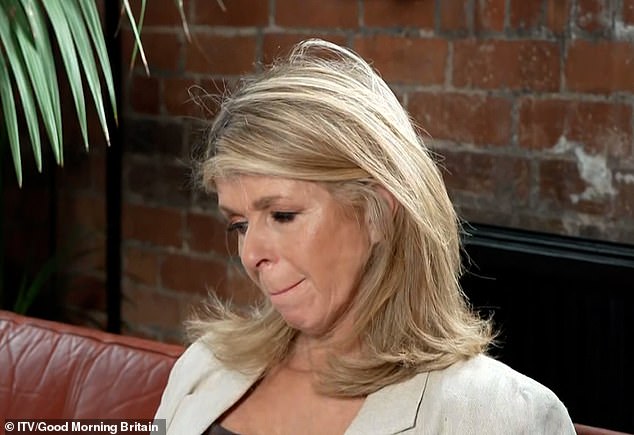
Kate Garraway fought back tears as terminally ill Dame Esther Rantzen, 85, made an emotional plea to the government – via phone call – about assisted dying bill on Good Morning Britain on Friday
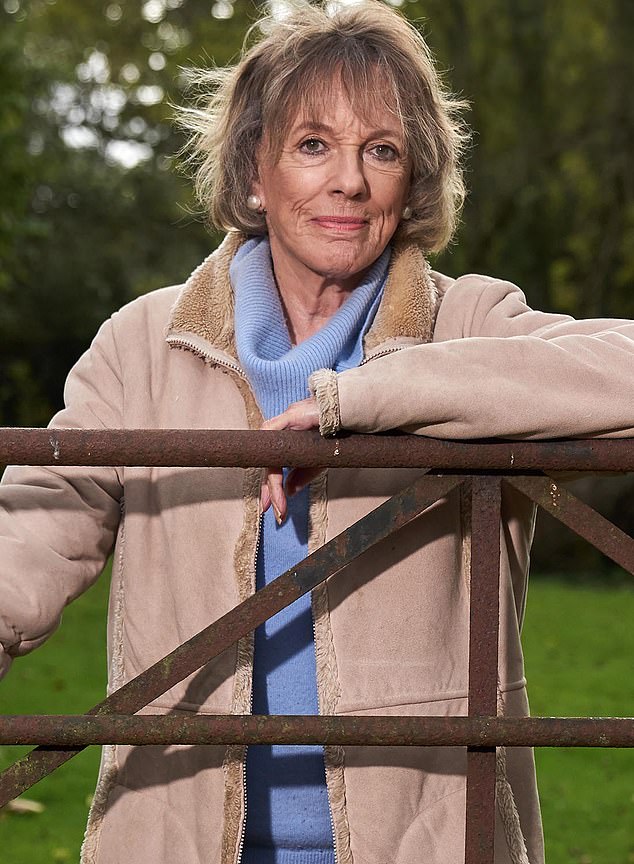
Dame Esther was diagnosed with terminal lunch cancer in 2023, and has admitted she is making arrangements to travel to Dignitas in Switzerland, (pictured in 2021)
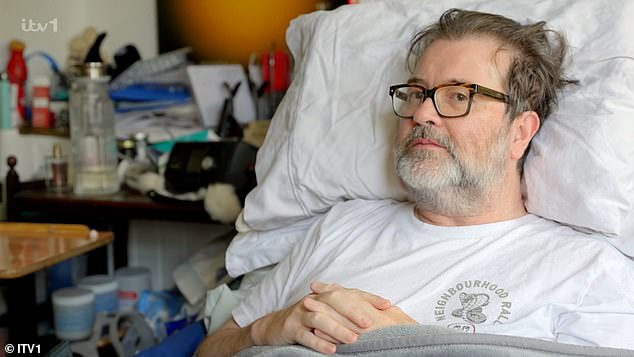
Kate’s husband Derek passed away last year after a battle with complications of Covid
‘I just wish that I was allowed to say goodbye to my family and for them to see that I have a good death.’
Dame Esther, who was diagnosed with terminal lung cancer in 2023, continued: ‘Please, House of Lords, give us terminally ill patients the hope, the confidence, the choice that if life gets unbearable, they can ask for help.’
Going on to address how the bill will affect disabled people due to the question it could be used against them if they become a burden to family, Esther added: ‘Some disabled people think that it will apply to them, well, it won’t.
‘It can’t, unless they are terminally ill with six months or less to live’.
Ending the call, which was shown as part of a segment on the ongoing debate, Kate, who lost husband Derek Draper after long-running complications following Covid-19 last year, was seen blinking away tears and taking an emotional moment to pause.
The proposed legislation, which is being debated today (Friday), will allow adults who are terminally ill and with less than six months to live to apply for assisted death.
Each case would need to be approved by two doctors and a panel of experts, including a psychiatrist, a social worker and a senior legal figure.
If approved, the terminally ill person would be allowed to take an approved substance as part of the assisted death process.
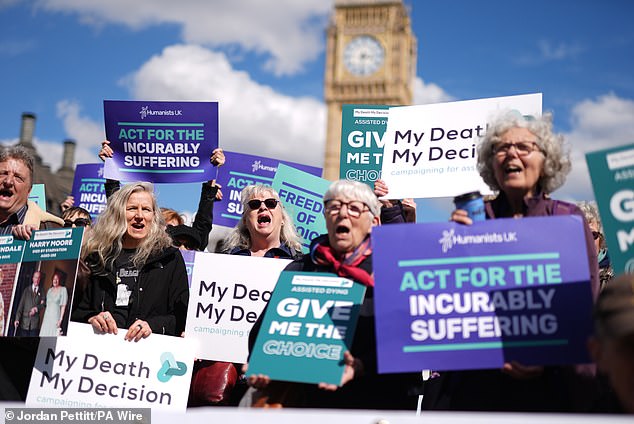
The assisted dying bill would allow people in England and Wales with a terminal illness and less that six months to live to have an assisted death
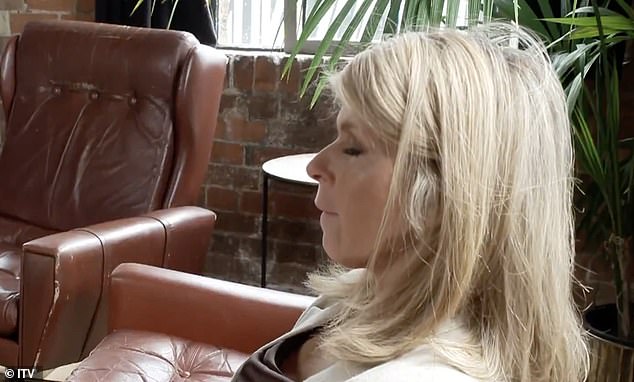
Kate appeared to be blinking away tears during the emotional interview which aired on Good Morning Britain on Friday
Nearly 200 peers put their name down to discuss the issue, which breaks the record previously held by the Brexit debate, with a majority expected to support the bill.
If supported by enough peers, the next stage would see it become legal.
Earlier this year, the Daily Mail revealed how public support for legalising assisted dying falls to just 11 per cent when people learn what it actually involves.
While almost three quarters of compassionate Britons back changing the law in principle, this support collapses when they are told how assisted dying works in other countries, a major poll uncovered.
The survey of more than 5,000 people also reveals a widespread misunderstanding of what assisted dying means, with four in ten people unable to identify what will happen if the law is changed.
Almost 20 per cent of people wrongly believe assisted dying includes hospice care and over half think it includes ‘life-prolonging treatment’, the polling found.
A series of recent polls have put public support for legalising assisted dying at between 60 per cent and 73 per cent in favour.
While six in ten people agree that it is ‘impossible’ to create safeguards that would prevent the vulnerable from being coerced into ending their lives, it found.
Good Morning Britain airs weekdays from 6am on ITV.











